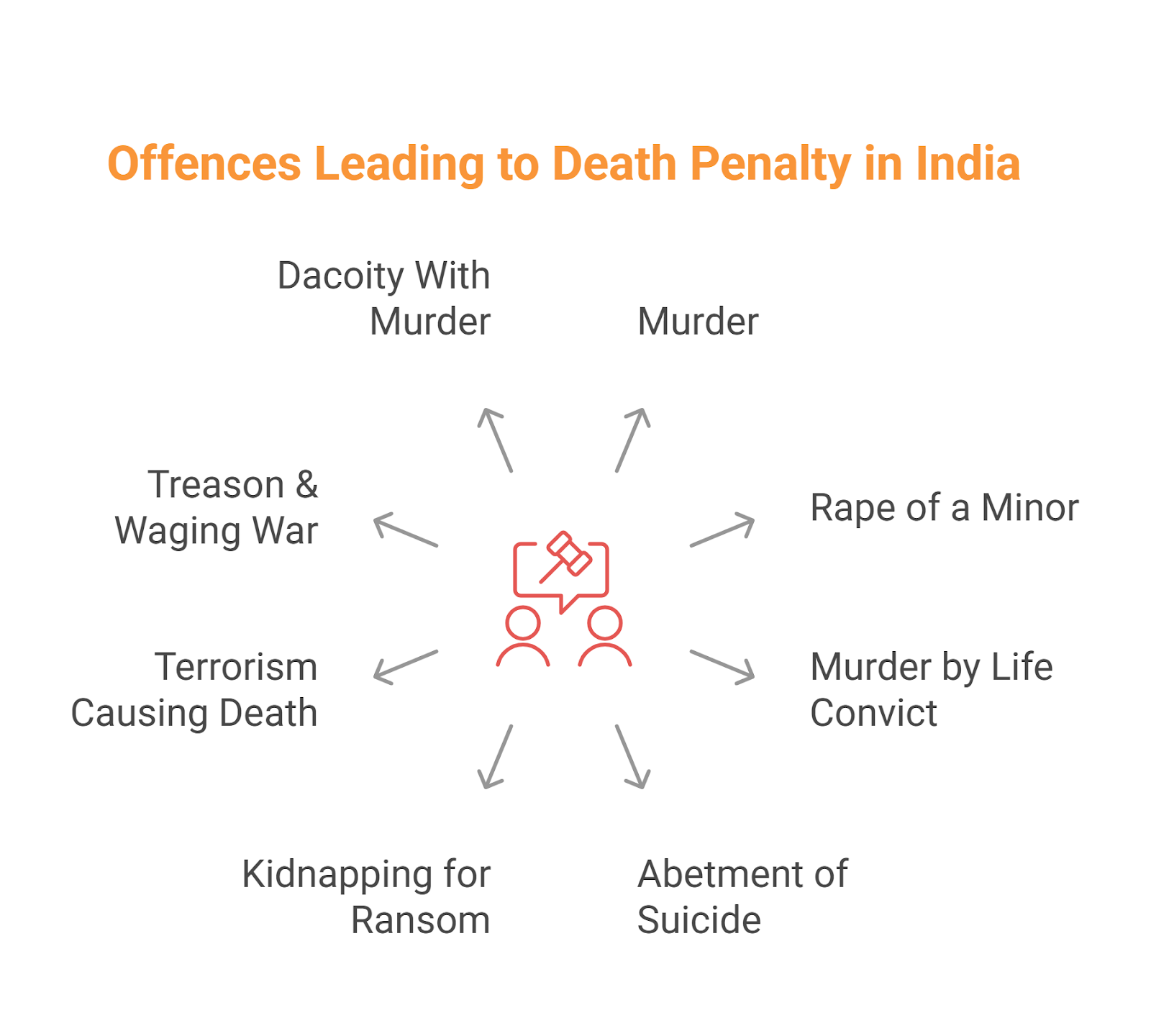Capital Punishment in India
Context: In a significant ruling, a three-judge bench of the Supreme Court has held that a writ petition under Article 32 of the Constitution can be filed to revisit the sentence awarded in death penalty cases.

Why is the Death Penalty Questioned?
The death penalty, or capital punishment, is a highly debated subject globally and in India. It is questioned on several ethical, legal, and practical grounds:
- Violation of Fundamental Right to Life: Critics argue that the state does not have the moral authority to take a life, as it is a violation of the inalienable right to life and dignity under Article 21 of the Constitution.
- Fallibility of the Justice System: The risk of error is irreversible. If an innocent person is executed, the mistake cannot be rectified.
- Arbitrary and Discriminatory Application: The Law Commission of India (262nd Report, 2015) noted its arbitrary application.
- Lack of Deterrent Effect: There is no conclusive evidence to prove that the death penalty acts as a more effective deterrent to crime than a life sentence.
- Psychological Torture of Convicts: The prolonged legal process, uncertainty, and living on “death row” for years (a phenomenon known as the “death row phenomenon”) is considered a form of cruel and inhuman treatment.
Related Supreme Court Judgements
Bachan Singh vs State of Punjab (1980): The Supreme Court upheld the constitutionality of the death penalty but restricted it to the “rarest of rare” cases. It mandated that courts must consider both aggravating (factors of the crime) and mitigating (factors about the criminal) circumstances.
Manoj vs State of Rajasthan (2022): The Court mandated that a thorough psychiatric and psychological evaluation of the death row convict must be conducted and considered as a mitigating factor. This was the precedent cited by Dupare in his petition.
What suggestions can be adopted to curb the death penalty?
- Legislative Abolition: The most direct method is for Parliament to pass a law abolishing the death penalty and replacing it with life imprisonment without remission or parole for the most heinous crimes.
- For Example, 144 countries have abolished the death penalty in law or practice (as per Amnesty International).
- Adhering to the “Rarest of Rare” Doctrine Strictly: The judiciary must consistently and narrowly apply the Bachan Singh framework, ensuring the death penalty is an exception.
- Promoting Commutation and Clemency: Encouraging the use of the constitutional power of pardon under Article 72 (President) and Article 161 (Governor) to commute death sentences based on humanitarian grounds, prolonged delay, or mental illness.
- Public Awareness and Debate: Generating informed public discourse on the lack of deterrence, the financial costs of lengthy legal processes, and the ethical concerns, moving the debate beyond retribution.
- Focus on Victim Rehabilitation: Shifting the focus from retributive justice to restorative justice by strengthening victim compensation schemes and support systems.
